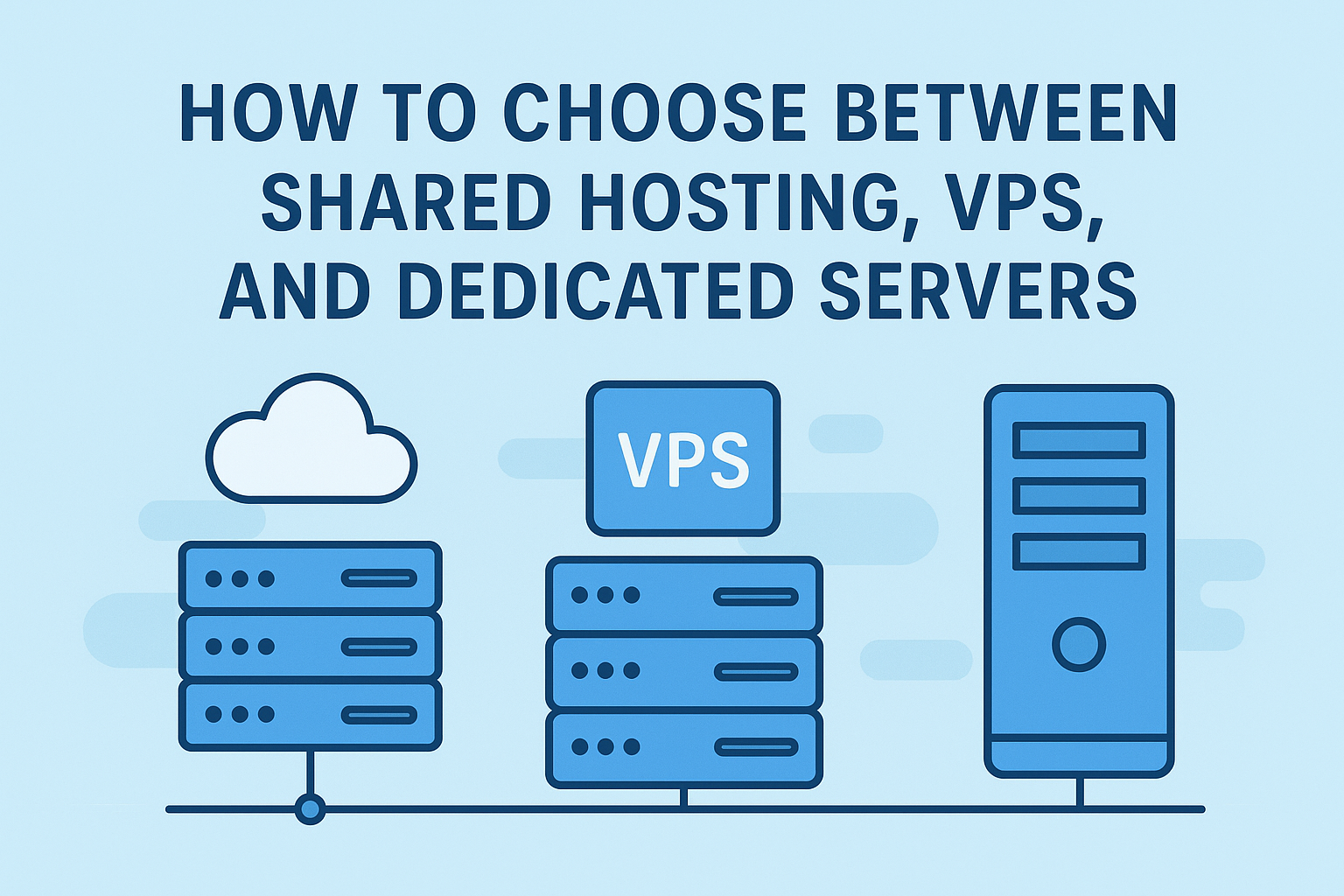How to Choose Between Shared Hosting, VPS, and Dedicated Servers
When starting a website, one of the most crucial decisions is selecting the right hosting plan. Your hosting choice impacts website performance, speed, security, and scalability. The three most common hosting options are Shared Hosting, Virtual Private Server (VPS), and Dedicated Servers. Each option has unique benefits and limitations, making it important to choose based on your website’s needs, traffic, and budget.
Let’s break down the differences to help you make the right decision.
🔹 What is Shared Hosting?
Shared hosting means your website shares server resources with multiple other websites. It is the most affordable option, making it perfect for beginners and small websites.
Pros of Shared Hosting:
-
Cost-effective and beginner-friendly
-
Easy to set up with one-click installations
-
No technical management required
Cons of Shared Hosting:
-
Limited performance and slower speed during high traffic
-
Limited customization options
-
Shared security risks if another site is compromised
✅ Best for: Small blogs, personal websites, and startups with low traffic.
🔹 What is VPS Hosting?
A Virtual Private Server (VPS) divides one physical server into multiple virtual servers. Each website gets dedicated resources, providing more power and flexibility than shared hosting.
Pros of VPS Hosting:
-
Better performance and faster speed
-
Dedicated resources for each user
-
Customization and root access available
-
More secure compared to shared hosting
Cons of VPS Hosting:
-
More expensive than shared hosting
-
Requires some technical knowledge for advanced features
✅ Best for: Growing websites, small businesses, and eCommerce stores with moderate traffic.
🔹 What is a Dedicated Server?
A dedicated server means you rent the entire server exclusively for your website. It provides maximum control, performance, and security, but comes at a higher cost.
Pros of Dedicated Servers:
-
Full control over server resources
-
Highest performance and speed
-
Strongest security and reliability
-
Ability to handle very high traffic volumes
Cons of Dedicated Servers:
-
Expensive compared to shared and VPS
-
Requires advanced technical management
-
Not necessary for small websites
✅ Best for: Large businesses, high-traffic websites, and enterprises needing maximum performance.
🔹 Shared Hosting vs VPS vs Dedicated Server: Quick Comparison
| Feature | Shared Hosting | VPS Hosting | Dedicated Server |
|---|---|---|---|
| Cost | Cheapest | Moderate | Expensive |
| Performance | Limited | Better | Best |
| Scalability | Low | Medium | High |
| Security | Basic | Stronger | Maximum |
| Best for | Beginners, small sites | Small/medium businesses | Enterprises, large sites |
🔹 How to Choose the Right Hosting for Your Website?
When deciding between shared hosting, VPS, and dedicated servers, consider the following factors:
-
Budget – If you’re just starting, shared hosting is budget-friendly.
-
Traffic – For growing traffic, VPS is ideal. For heavy traffic, choose a dedicated server.
-
Technical Skills – Beginners should start with shared or managed VPS. Advanced users can manage dedicated servers.
-
Business Needs – Small projects don’t require dedicated servers, but large enterprises benefit greatly.
✅ Final Thoughts
Choosing the right hosting plan depends on your website size, budget, and performance needs. If you’re new, shared hosting is a great starting point. As your site grows, VPS hosting provides the perfect balance of cost and performance. For high-traffic businesses, a dedicated server ensures maximum speed, security, and reliability.
The right decision today will save you time, money, and headaches in the long run.






